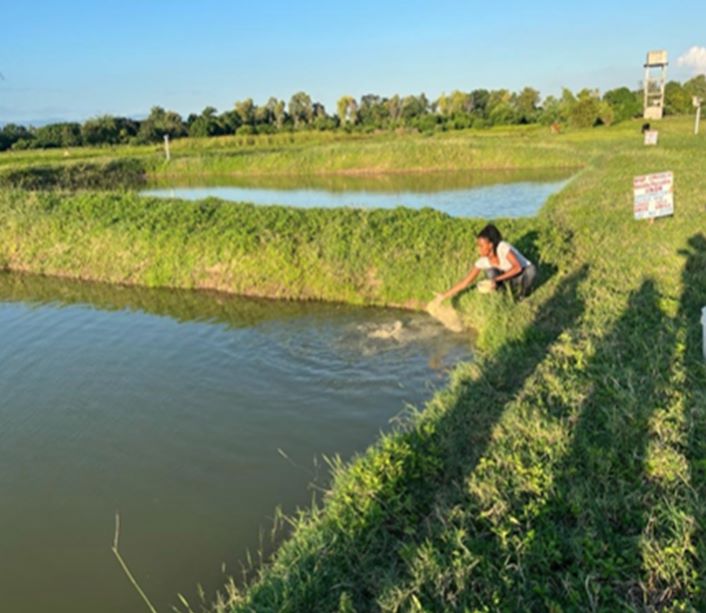April 19, 2024
K-State lab embracing land-grant mission in Haiti

Kansas State University's Feed the Future Innovation Lab for Collaborative Research on Sustainable Intensification, or SIIL, is partnering with Haitian universities to repair fishponds destroyed by the 2021 earthquake and tropical storm.
Through a $12 million grant from the USAID-Haiti Mission, the SIIL's Center of Excellence on Mitigation, Adaptation, and Resilience to Climate-Change in Haiti lab, or CEMARCH, is engaging with six Haitian agricultural universities to develop capacity in agricultural education, extension and research. For two universities this includes the renovation of their fishponds to bring revenue to support the universities and their communities.
In spring 2023, K-State collaborated with the universities to complete repairs and restock ponds for their teaching and extension programs to help Haitian farmers adapt their production techniques.
"The renovation of the fishponds and their new use as a research, teaching, extension and revenue generation tool is a great example of the multiple benefits this project provides, and will help the project to be sustainable," said Vara Prasad, director of SIIL, university distinguished professor and R.O. Kruse professor of agriculture. "This will allow students and youth to become entrepreneurs, becoming self-employed and supporting their families and communities, under the current challenging conditions in Haiti.”
The CEMARCH universities are investing in research projects in fishpond management because fishponds represent a reachable and practical way for Haitian farmers to produce and provide affordable protein to Haitians. The pond fisheries research being performed at the universities help farmers determine best practices for fish production and aid in feed selection. Additionally, water from the pond can be used in hydroponic facilities, providing nutrient-dense water for producing vegetables in a controlled environment.